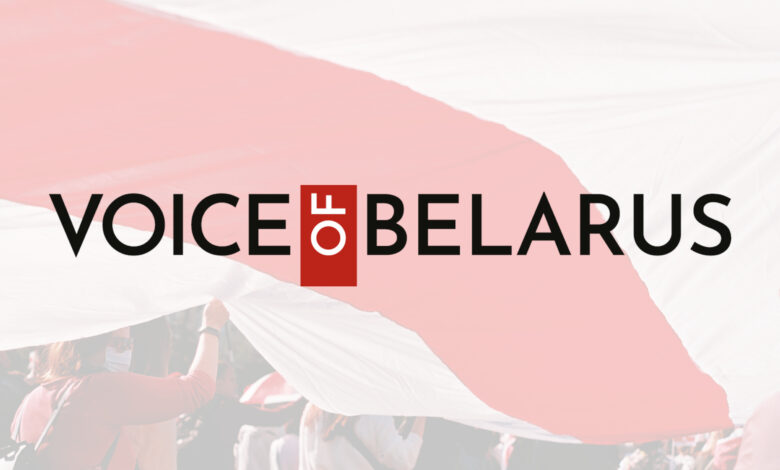Belarusian protest movement inspires powerful protest art

The protest wave in the aftermath of the 2020 elections in Belarus found a wide response in the artistic community.
Andrei Kutsila’s documentary When Flowers Are Not Silent won the documentary nomination at the 37th Warsaw Film Festival. It is a film about the protests in Belarus that are shown through personal stories of the families affected by repressions and violence. For director Andrei Kutsila this pain is personal: his sister was sent to prison on Akrestsina Street in August 2020. At the center of the narrative are Belarusian women who participated in the protests and went out in solidarity chains carrying flowers. This is how the movie title was born – When Flowers Are Not Silent.
Courage, a documentary by the Belarusian director Aliaksei Paluyan, premiered at the Online Industry Event of the 71st Berlin International Film Festival this spring. The story of three protagonists unfolding during the events of August 2020 illustrates the confrontation between people and the regime’s violence. Aliaksei Paluyan considers the scene on Akrestsina Street, when people are waiting for their relatives to be released from prison, one of the key episodes of the film.
The release of the film Minsk is slated for fall 2021. It is a story of a young married couple who happened to be in the midst of protests. Filming took place in Estonia because the filmmakers were not allowed to do that in Russia.
Andrei Kureichik, a Belarusian screenwriter, playwright, director, and publicist, wrote two plays about the protests.
Insulted. Belarus(sia) tells a story of the first days of the protests, their ups and downs on the eve of the inevitable democratization of the country after 26 years of dictatorship. It has become one of the most ambitious projects of theatrical solidarity in the world: more than 200 readings and performances in 39 countries and 29 languages. The play also received a special prize at the Golden Mask Theater Award ceremony.
Voices of a New Belarus is a play based on letters and documents from famous political prisoners (Mikola Statkevich, Maria Kalesnikava, Maryna Zolatava, Stsiapan Latypau, Vitold Ashurak) as well as regular Belarusians who fell into the meat grinder of repression.
The famous writer Sasha Filipenko has become one of the voices of the Belarusian protest movement in Europe. In 2021, he published a series of open letters to the President of the International Hockey Federation René Fasel, which contributed to the relocation of the Ice Hockey World Championship from Belarus to Latvia. Mr. Filipenko also wrote an open letter to the President of the International Committee of the Red Cross Peter Maurer, in which he accused the ICRC of unwillingness to inspect Belarusian prisons, where political prisoners are being tortured. The letters were published by leading European newspapers.
Sasha Filipenko’s novel Ex-Son was published in 2014, but it accurately reflects the situation in Belarus in 2020. The Ex-Son was to be staged in Minsk, but the Belarusian authorities did everything to prevent the premiere from taking place in Belarus. The director was forced to leave Belarus for Ukraine, and the play was staged in Kyiv.